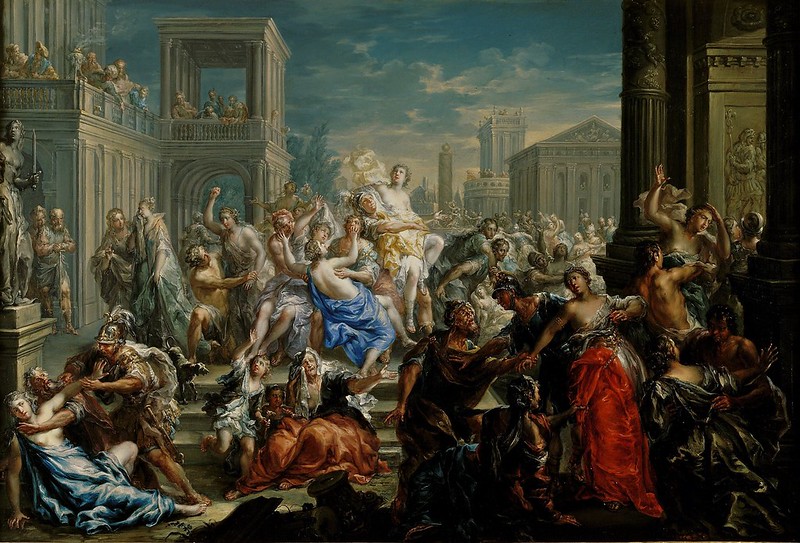Johann Friedrich Fasch (1688-1758) - Magnificat anima mea Dominum (c.1724), FWV H:G1
Performers: Vokalensemble sirventes berlin; Akademie für Alte Musik Berlin; Stefan Schuck (conductor)
---
German composer. He was one of the most significant German contemporaries of Bach, and his orchestral works are characteristic of the transition from the late Baroque style to the Classicism of Haydn and Mozart. Fasch was descended from a line of Lutheran Kantors and theologians. His earliest musical studies were as a boy soprano in Suhl and Weissenfels, and at 13 he was enlisted by J.P. Kuhnau for the Leipzig Thomasschule; his first compositions followed the style of his friend Telemann. While a student at the University of Leipzig he founded a collegium musicum which rivalled the eminence of the Thomasschule in the city's musical life. In this cosmopolitan city he encountered the concertos of Vivaldi, which greatly influenced his whole generation. Although he had no regular instruction in composition, he soon became so well known as a composer that his sovereign Duke Moritz Wilhelm of Saxe-Zeitz commissioned him to write operas for the Naumburg Peter-Paul festivals in 1711 and 1712. For purposes of study Fasch undertook a long journey through several courts and cities, eventually arriving at Darmstadt, where he studied composition with Graupner and Grünewald. He then held several positions, including those of violinist in Bayreuth (1714), court secretary and organist in Greiz (until 1721) and Kapellmeister to the Bohemian Count Wenzel Morzin in Prague, whose accomplished chapel orchestra earned Vivaldi’s praise. In 1722 Fasch reluctantly accepted the position of court Kapellmeister in Zerbst. In the same year he was twice invited to apply for the position of Thomaskantor in Leipzig, but withdrew from the competition shortly after Telemann did so, deciding that it was too soon to leave Zerbst.
In 1727 he spent some time at the Saxon court in Dresden, where his friends Pisendel and Heinichen were in charge of orchestral music and the Catholic chapel respectively. Heinichen's death in 1729 is a 'terminus ante quem' for several of Fasch's surviving liturgical pieces, which were performed by the chapel choir under Heinichen, who noted the duration of pieces on the manuscripts (as well as rewriting sections, which Pfeiffer has taken as an indication that the Dresden experience was another learning venture). Surviving correspondence, particularly with Nikolaus Ludwig, Reichsgraf von Zinzendorf, head of the Pietist Brotherhood in Herrnhut, reveals Fasch's unhappiness in strictly Lutheran Zerbst. Only one further application for a formal position is recorded (Freiberg, 1755), but it was unsuccessful, and Fasch remained at Zerbst for the rest of his life. During his 36 years there Fasch was primarily occupied with the composition of church cantatas and festival music for the count. His fame as a composer spread far beyond Saxony: his works were familiar to numerous courts and city churches, from Hamburg (where in 1733 Telemann performed a cycle of his church cantatas) to as far afield as Prague and Vienna. He enjoyed especially close relations with the famed Hofkapelle in Dresden, at which the Kapellmeister Pisendel performed many of his concertos (to some extent in arrangements), and likewise with the court at Cöthen, which attracted him by its Pietist leanings. Through his son C.F.C. Fasch, harpsichordist at the court of Frederick the Great in Berlin from 1756, he was connected with C.P.E. Bach.

Cap comentari:
Publica un comentari a l'entrada